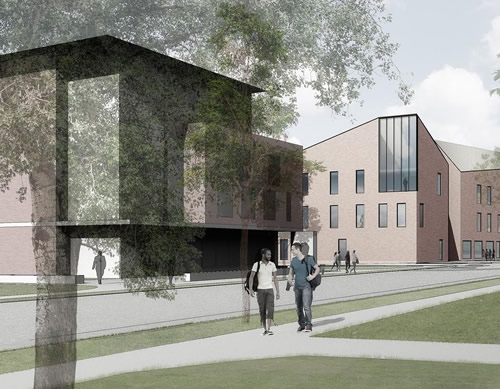New Science Center Planned at Bates College
Bates College in Lewiston, ME, recently announced a 2019 groundbreaking for a new science facility that will be geared toward collaborative research. The proposed facility will be home to a wide range of scientific disciplines, including chemistry, biology, and neuroscience.

By housing different science disciplines together, the new facility will aim to encourage a sharing of research and laboratory spaces in a way that promotes greater interaction among student researchers. The facility will be one of several elements that underline a growing emphasis on STEM at Bates in 2019. Architectural firm Payette is handling programming and design for the new facility, with Consigli Construction Co. undertaking construction management responsibilities. The project is scheduled for completion in 2021.